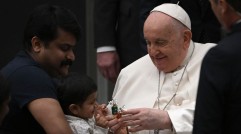Summer Olympics 2016 Location Contaminated: Brazil Can Not Clean Guanabara Bay in Time for Games Despite Past Claims
According to officials, Brazil's Guanabara Bay will still be a polluted, contaminated site by the time of the 2016 Summer Olympics.
On May 7, Carlos Francisco Portinho, Rio de Janeiro's state environment secretary, wrote a letter to Sports Minister Aldo Rebelo saying that it will take more than a decade to lower the bay's pollution to a respectable level. Back in 2009, however, officials said the bay would be cleaned, "setting a new standard of water quality presentation for the next generations," reported Fox News Latino.
"It can get really disgusting, with dog carcasses in some places and the water turning brown from sewage contamination," Thomas Low-Beer, a 24-year-old who hopes to sail in the next Olympics, told The New York Times.
Brazil was supposed to get rid of 80 percent of Guanabara Bay's pollution by 2016, but currently almost 70 percent of the sewage that flows to 12 million residents in the area is still untreated, Fox News Latino reports. In addition, thousands of tons worth of garbage are present in places like Copacabana and Ipanema
Portinho is now asking for $70 million to double the number of RTUs from two to four because it "would represent a reduction of over 50 percent of the pollution flowing into Guanabara Bay."
"[Given the] urgency of the matter and its fundamental role in the event, it is of great importance that the funds be released in order to allow construction [on the new RTUs] to begin in the second half of 2014," he wrote.
According to New York Times, things like "mismanagement' and "allegations of corruption" have caused money to go to waste as rather being used to clean waste.
"Even if the necessary resources to implement sanitation systems in the waterways mentioned were released, it would not be possible to plan and implement all the projects within a timeframe that would make a significant difference in the water quality in Guanabara Bay by the 2016 Olympics," Portinho's letter added.
"The government could deploy aircraft carriers to collect the bay's garbage, and the problem would not be solved," Mario Moscatelli, a biologist, told the newspaper. "The bay is still a latrine. It's an insult to Rio's people to say it will be clean for the Olympics."
Rebelo denies reports that the Olympics is considering finding a new host city.
"You can be guaranteed it is nothing but a bluff," Rebelo told New York Times referring to big sponsorships. "I doubt the Olympic Committee wants to lose that business."
---
Follow Scharon Harding on Twitter:@ScharHar.
Subscribe to Latin Post!
Sign up for our free newsletter for the Latest coverage!














